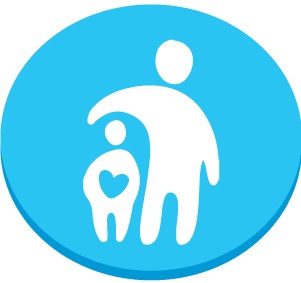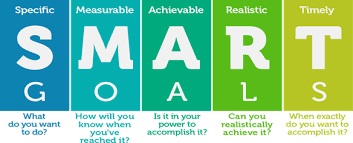A Coaching Model Created by Julie Kong
(Introverted Woman Leader Coach, SINGAPORE)
 Introduction
Introduction
I would like to dedicate this model to my eldest daughter who made me discovered the joys and sorrows of motherhood. Becoming a mother has never been a natural aspiration and I wouldn’t have taken up the challenge as an alerted person. However, we cannot imagine all the human wealth that this relationship could bring: courage, generosity, kindness, love.
In my international career, I have come to meet and lead different profiles of people with the aim of transformation and continuous performance. I had to make decisions and risks to impose my ideas which are often criticized. Daring to be a leader whatever the level, the structure of the company is a perpetual battle where you have to apply different tools and strategies. Many give up and are discouraged by external pressures or factors they cannot control. Some forget their own beliefs and the purpose of their initial fight. Some become war machines, working tools without humanity.
Becoming a parent was a big personal challenge and made me realized the gaps I could face as a leader.
Explanation
My coaching model is based on the principle of Partnership and Trust. It is a collaborative journey where the coach offers his support and takes care of his client. Throughout the relationship, this support will take many forms and will adapt to maximize the client’s potential and well-being. Together, we will define the fears and obstacles encountered and develop an action plan to achieve peace and success for the client.
To my grown-up daughter, who gives me the strength to overcome daily hardships and who encourages me to create a better world.
Through this coaching model symbolized by your initial C and the 5 letters of your first name, I wish to highlight the stages of my coaching which recall our precious moments. Pleasant or tough moments, they will hopefully help you become a fulfilled and happy person.
Coaching Process
Complicity
Coming together is a beginning. Keeping together is progress. Working together is a success.-Henry Ford
The first phase is to create bonding between coachee(s) and coach to deliver a common goal and simplify the interactions. Ice breaker games, fun discussion, personality checks are tools that could be applied to better understand each other and build a trustful relationship. Complicity facilitates the creation of a safe environment for the coachee(s) to openly share their concern and aim of the session.
Curiosity
Diversity is about all of us, and about us having to figure out how to walk through this world together. – Jacqueline Woodson
We are all different and come with a specific background. Our beliefs are inspired by external factors that a coach can’t judge. Similar to Montessori theory, this stage focuses on the observation, the understanding of the coachee’s mind, and the piece of consciousness & unconsciousness. Led by the coachee, we will be engaged in an exploration of the client’s legacy and true values.
Control
Knowledge is power. Information is liberating. Education is the premise of progress, in every society, in every family. – Koffi Annan
Kids are smart. Knowledge is power. Let them figure things out. Don’t turn into that grown-up who they won’t come to. – Lauren Myracle
At this phase of the relationship, the client has grown-up with various information and learning skills obtained by awareness and strength finder. This is the reasoning stage where information is associated and the coachee will start gaining experience and determination to do things. This is where structures are designed to make the client setting its own pace.
Confidence
A man cannot be comfortable without his own approval. – Mark Twain
This is the empowerment stage where we address challenges that prevent the client to reach its goal. We will figure out the feasibility and power tools / skill-set required to achieve the goal. We will identify the level of influence in the targeted outcome and how we can improve it to reach a comfort zone and a peaceful mindset.
Commitment
Commitment is what transforms a promise into a reality. Abraham Lincoln
Commitment is an act, not a word. Jean-Paul Sartre
Now that the reality is revealed to the client with an awareness of what can be controlled, what is feasible, and what would be important to achieve, the last stage is to translate into an action plan based on SMART principles to keep momentum across different dimensions such as time, means, risk level, complexity, cycles, …

Conclusion concerning Leadership and Parenting analogy
Parenting skills are often compared to Leadership behavior: “both need to guide, teach, encourage, discipline, compliment and provide the atmosphere needed for their team or family members to be successful”1.
My coaching model is heavily inspired by this parenting approach that I frame as below:
- “Trust / Respect” → Caring, accepting the opinion divergence, and relying on each other without the fear of the hierarchy or punishment
- “Teamwork / Participative / 2- Way communication” → It is a collaborative relationship without limiting to orders and rules with no winner/loser side
- “Praise / Lead by example / Motivate and Inspire / Positive attitude / Flexibility and Pragmatism” → Congratulating instead of scolding, demonstrating instead of forbidding, adapting instead of persisting into one single education model
- “Accountability / Responsibility” → Encouraging the contribution of each and associating it to a reward and a role
- “Training / Resilience / Patience / Growth mindset / Understanding and accepting mistakes” → Failing is learning and success is a long journey with repetitive steps and undetermined outcomes that parent must accept and teach
Source / Inspiration
Pictures from:
https://blog.v-comply.com/smart-goals-for-business/
Maria Montessori theory stages:
http://ageofmontessori.org/stages-of-development-how-children-learn/
Similarities between parenting and leadership:
https://www.brighthorizons.com/family-resources/parenting-skills-how-to-be-a-good-parent-leader
https://www.bestofparenting.com/what-parenting-and-leadership-have-in-common/
1Quote from Brent Gleeson – https://www.forbes.com/sites/brentgleeson/2014/07/23/5-similarities-between-leadership-and-parenting/#2cead08765e6